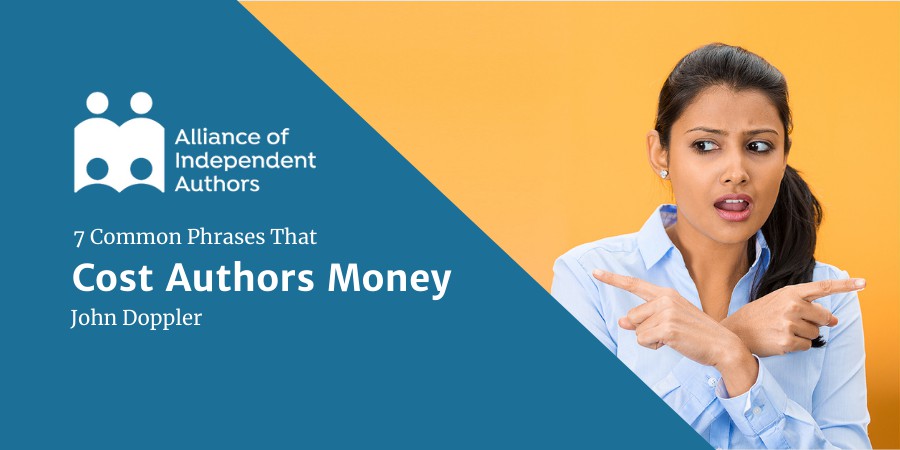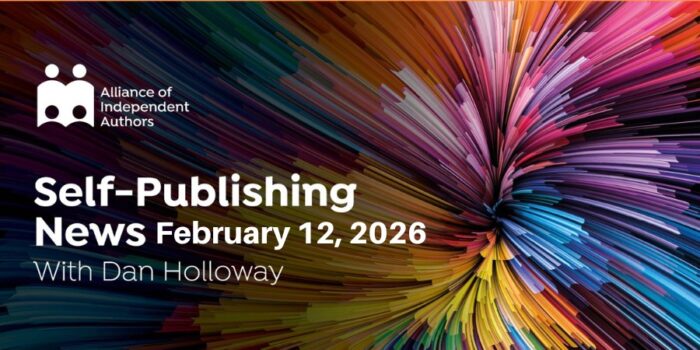Vague or hyperbolic language has always been a hazard in the world of self-publishing services. In this ocean of doublespeak, there are a handful of questionable terms that bob to the surface again and again. These phrases are common enough to escape notice, but nonetheless can lead to costly misunderstandings — or deliberate deception.
Here are seven seemingly innocent terms that should warrant a suspicious squint from indie authors.
1. Percent royalties.
100% royalties. That seems like a clear and transparent figure, but there's a dangerous loophole: 100% percent of what? Sale price? List price? Wholesale price? Net profit after costs? Depending on what that starting figure is, your actual revenue can vary tremendously. In most cases, this is net profit after print costs and retailer fees, but don't be afraid to ask for clarification.
2. Net profits.
When the basis for royalties is based on net profits, as most are, the term itself can hide pitfalls.
There's a practice known as “Hollywood accounting”, named for movie studios' use of devious accounting methods to inflate the recorded costs of a production, depriving artists of royalties. For example, Harry Potter and the Order of the Phoenix earned $940 million at the box office on a $150 million budget. Despite that massive windfall, Warner Bros. claimed on paper that the film lost $169 million. Much of that “loss” was paid to subsidiaries of Warner Bros. for distribution and other services. In essence, Warner Bros. stuffed most of the profits into its own pockets, then paid royalties based on the fraction remaining.
That's the peril of net profits. Without a transparent definition of what costs are included in the net, a publisher or assisted publishing service can siphon away royalties by hiring subsidiaries, affiliates, friends, or relatives, at fees that may be out of the author's control or knowledge. The author gets a fraction of whatever is left.
Good service providers (such as ALLi's vetted Partner Members) do not engage in these deceptive practices, but if you're dealing with an unfamiliar service, it's wise to pin down exactly what “net” includes and does not include.
3. An investment in your book's success.
Hybrid publishing is a relatively recent phenomenon in indie publishing. Whereas traditional publishers profit only when their authors' books sell, hybrid publishers offset some of that risk by requiring payment from the author up front. This is often framed as “investing in the success of your book”.
While there are reputable hybrid publishers who offer unique assets and exceptional value in exchange for the author shouldering the burden of risk, there are many more who are simply vanity presses seeking to legitimize their exploitation by relabeling their rip-offs. These disreputable services may throw the “investing in your success” phrase around as a form of negging: if you're not willing to hand over your money, well, then you must not be dedicated enough to invest in your success.
Of course, authors must always ensure that the services they hire offer a proper return on their investment, and caution is not lack of dedication. Reject any service that attempts to ridicule or shame you for being a prudent shopper.
4. Worldwide distribution.
Publishing services nearly always list “worldwide distribution” as a selling point, but this bit of fluff has little meaning. What distribution networks are used? To what countries? Will the distributor engage with booksellers on your behalf, or simply make your books available with no discoverability services?
These questions differentiate a high-end distribution service from the bare minimum needed to qualify as distribution.
5. A+ Rating with the Better Business Bureau.
Business owners and authors alike may be unaware that the Better Business Bureau's “A+ accreditation” is purchased, and meaningless. While the blue “A+” seal is displayed on many websites, it confers no assurance of quality or legality.
Some of the worst actors in the publishing industry have purchased accreditation from the BBB, whereupon their rating miraculously improved and years of complaints quietly disappeared.
Do not rely on the BBB seal as an indicator of legitimacy or customer satisfaction.
6. Free author copies.
Author copies of a book are a common perk in publishing packages, but they are never truly free. The costs are simply bundled into (and obscured by) the publishing package fees.
This practice is not unusual and there's nothing inherently wrong with it, but authors should be conscious of the hidden costs.
7. Guaranteed best seller.
Any marketer or publisher that guarantees the client will achieve best seller status is being disingenuous, at best. Promises of placement on the New York Times Best Seller list are immediately cause for alarm, as there is no way to guarantee that placement without fraud.
Promises of Amazon best seller status usually refer to a top sales rank in an obscure niche category, rather than the more significant storewide best seller status.
Be skeptical, be inquisitive.
You may have noticed that most of the terms above are dangerous due to their ambiguity; all of these terms can be used earnestly and honestly, without nefarious intent. Their inclusion in a service provider's marketing materials should not be considered alarming, but rather, a question to be answered.
A quick discussion with the service provider can clear up any ambiguity and in most cases, will confirm whether you're dealing with a reputable service.





I am looking for the best self-publisher for an academic work ‘The Broken Monuments of My Great Desires; a literary biography of sir Walter Ralegh. The OUP suggested Amazon but I don’t have the computer skills to take this route.
You might like to try Book Baby in the US or Matador in the UK
Good overall advice. I try to read these articles every couple of days in between revising my manuscript as I march toward a self-publish date of late 2021 or early 2022. These articles for me are like slow release capsules of info so I avoid info overflow and anxiety enroute to my goal.